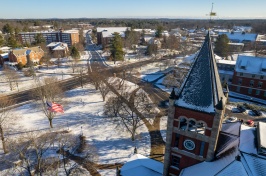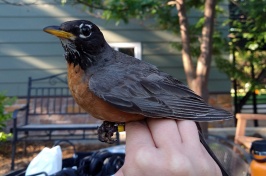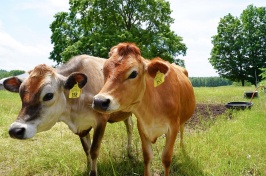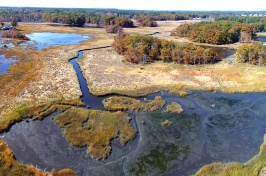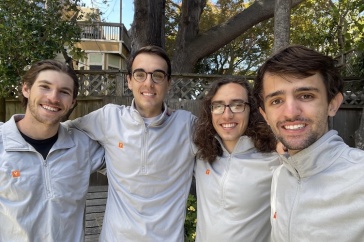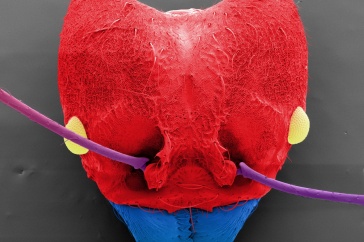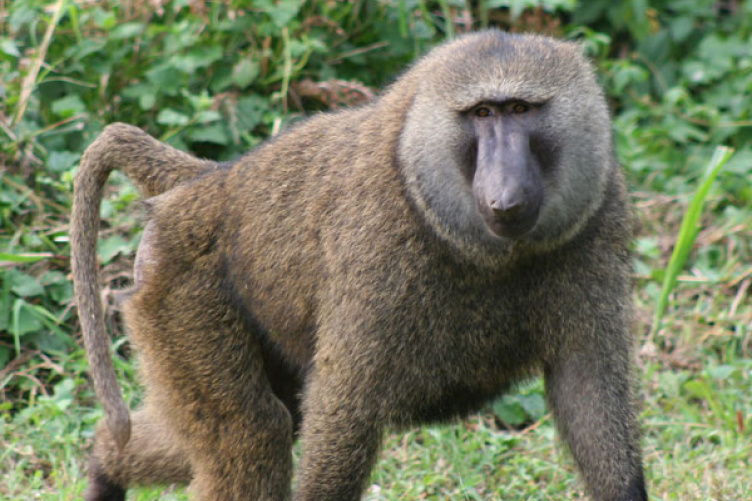
Why is Joel Hartter in Uganda?Research in the Rift Hartter's research is based in Uganda in a string of seven national parks known as the Albertine Rift. Funded by the National Science Foundation (NSF) and National Geographic Society, Hartter co-directs the Population, Environment, and Climate in the Albertine Rift (PECAR) project, which explores the impacts of population explosion and climate change on local resources and on the park system's conservation interests in the area—prime habitat for endangered mountain gorillas, chimpanzees, and a host of other wildlife. Projects include climate change adaptation research in Kibale National Park, which involves collecting and sharing climate data with the local community and park officials, and surveying local perceptions of climate change impacts. Two new projects in the Kibale region, both cross-disciplinary efforts funded by NSF, will commence within the coming year. Hartter will work closely with post-doctoral researcher Lisa Tiemann and Stuart Grandy, assistant professor of environmental sciences, to examine soil fertility and farming practices. Meghan Howey, assistant professor of anthropology, and Michael Palace of the Institute for the Study of Earth, Oceans, and Space will work with Hartter to explore the population boom of the African Iron Age to learn if forest resource use of the past might inform current challenges. Hartter also conducts field work in northeastern Oregon on the changing socio-ecological conditions in historically forest-dependent communities and how those changes impact livelihoods, the environment, and human safety. |
The Misadventures of a Geographer
A baboon chased Assistant Professor of Geography Joel Hartter into the Indian Ocean in South Africa. In Uganda, hippos chewed grass underneath his tent—while he was in it. He has stumbled upon armed poachers, outrun an elephant, and almost died from African Spotted Fever in the worst case doctors had ever seen. Apparently, it's all in a day's work for Hartter, who has conducted research in Africa for the last eight summers.
Baboons with Teeth Longer than a Lion's
The baboons that Hartter encounters in Kibale National Park in Uganda aren't as aggressive as the ones in South Africa, but Kibale's baboons are a huge nuisance. At the research base camp, the baboons are smart enough to open cabin doors and tough enough to break into them when they're padlocked. Arriving in groups of 10 or 12, they raid kitchens, rip open metal cases, and destroy propane stoves, all in an effort to get bread, eggs, cheese—whatever they can get their paws on. "They took my door right off of its hinges," says Hartter, who cites baboons as the biggest problem he encounters in Uganda. "And they have teeth longer than a lion's! It used to be that you could yell at them and they would run into the forest, but they aren't afraid anymore."
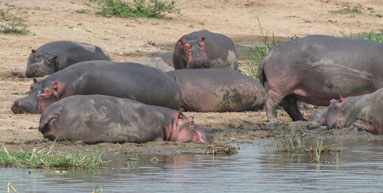
"The Craziest Night You'll Ever Have"
A colleague once told Hartter, "The craziest night you'll ever have is sleeping with hippos." He was right. Hippos are mean, fast, and huge. At night, they come out to graze and often run towards the water. Since people camp near water, this creates a potential problem: you don't want to be caught between a hippo and his water.
A few years ago, Hartter was tenting on the banks of the Ishasha River along the Congo border when he heard hippos moving in. Cautiously peeking out, he saw hippos coming out of the river to graze. Not satisfied with the available grass, some hippos pushed under Hartter's tent for better fare. "It was really, really freaky," says Hartter, who remained still—and wide awake—until the hippos left a couple of hours later. He learned that it's a good idea to position your tent between a tree and your truck for protection.
Lions, and Bodas, and Guns
While Hartter is traveling deep inside the Ugandan park system, either in a truck or on the back of a boda—a motorcycle taxi, he never knows just what he might run into. It could be a huge, sleepy lion lolling in a tree, or an agitated herd of elephants or buffalo. Perhaps more unexpected are dangers posed by human activity. This summer, while a bit lost in the bush, Hartter stumbled upon park rangers with AK-47s trained on a group of spear-wielding poachers. It was unsettling, he admits. "You get used to seeing machine guns," says Hartter, "but it's always less than optimal because you never quite know if they're loaded or not."
But the bodas themselves might be the bigger danger. Think rickety moped driven by a man in flip-flops. The terrain in Kibale is as rough as a New Hampshire White Mountain trail. The bodas bump and turn at high speeds. Negotiating a herd of elephants on a moped over rocks and roots takes fortitude—for both driver and passenger. Some of Hartter's colleagues refuse to ride on a boda at all. "They may be smarter than me," says Hartter.






















